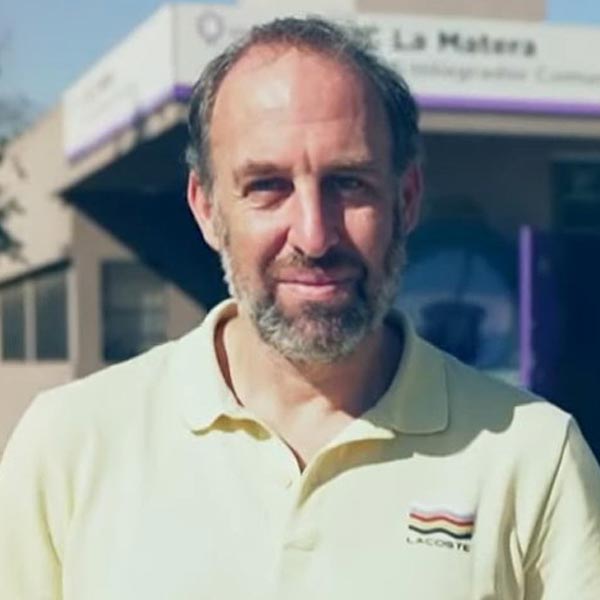A new automated and integrated epidemiological information system
A dream of creating a network of health services in a suburb of Buenos Aires to support early detection and treatment.

The Spark
In early 2020 as the first wave of COVID-19 hit Argentina, Silvia an Atlantic Fellow for Equity in Brain Health, and Jonatan an Atlantic Fellow for Health Equity U.S + Global realized that inequalities in the health system would be exposed by the pandemic. Although Argentina had identified healthcare as a priority, signing up to the 1984 United Nation protocol affirming health as a human right, the Fellows knew that worldwide health systems once thought robust were being tested by the spread of the disease.

The COVID-19 pandemic created significant delays in treatment and increased waiting times for access to health support. Fellows Silvia and Jonatan realized that hospitals cannot work alone.
The Fellows concentrated on an area of the Southeast Network of the Metropolitan Buenos Aires Metropolitan Area. A total of 14 health centers with different levels of care complexity provided care to the inhabitants of the urban and rural area.
In one, Quilmes, they identified that the number of available beds across all hospitals was enough to fill a new hospital. But the hospital in the locality lacked vital information about bed availability, staffing levels, and technological resources. In response, the Fellows set about creating an automated and integrated epidemiological information system. This system, equipped with geographic tools, management boards, and statistical resources.
The system provided real-time epidemiological data on hospitalized patients, aiding in the planning of interventions and allocating necessary resources.

The Initiatives
The creation of tools and resources to support management of the health system in Buenos Aires.
The development of the system brought together a range of professions working in the healthcare system. Those involved included: administrative employees; systems analysts; administration graduates; clinical doctors; intensivists; emergentologists; researchers; directors; and managers. They all brought expertise in sharing information, what their challenges were and what they would like the system to be to support the efficiency of healthcare provided in the region.
With this evidence gathering, the fellows worked with the developers to build an epidemiological surveillance device to organize the response of the health system, manage resources, plan interventions and support research projects. The integrated epidemiological information system enables the collection, organization and analysis of information that allows the follow-up and monitoring of the availability of resources including: ICU; General Ward with oxygen therapy; and General Ward stay. It provides essential information on the evolution of the pandemic in the Southeast region of the Buenos Aires suburbs. These suburbs include the Municipalities of Florencio Varela, Quilmes, Almirante Brown and Berazategui, which have a population of approximately 2,000,000 people.
Technical assistance relating to the system and manuals have been provided to the network of partners, along with a help desk for continuous support. The project also contributed to the generation of research outputs that enable the sharing of insights regarding the work that has been done.

The Scale
The project has enabled key information to be shared efficiently and to support treatment of patients.
This project has achieved the following impact:
- Detailed systematic analysis has been undertaken of the epidemiological information. This includes data obtained from the control panel related to the occupation of beds and the epidemiological profile of hospitalized patients (i.e. clinical risk, social risk, days of hospitalization, pre-existing diseases, type of discharge). The information has been shared with main decision-makers responsible for health policies in the region. Recipients include hospital directors, health secretaries of the Municipalities and authorities of the ministries of health of the Province of Buenos Aires, and the National Government.
- The new information system has improved data recording and information monitoring and has enhanced communication between the health care providers in the region.
- The providers in the region are working collaboratively and have built a supportive network.
- The tool has sped up the referral of patients out of the health system into the private and social sectors. As a result, patients were able to receive the care they needed without placing a burden on one healthcare provider.
- The project provided an instrument that made it possible to adjust the care proposal according to the people’s social health needs.
The Future
The frontline health workers have the tools and education to look after their well-being. The Fellows are now exploring further opportunities to set up regular sessions for other healthcare workers.
Media Mentions
The Initiative is working on releasing the Holistic Safety Education course and offering training on using HoSAI as a tool to improve the safety of girls and frontline defenders working with them.







